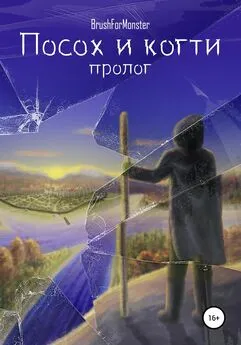Mons Kallentoft - Autumn Killing
- Название:Autumn Killing
- Автор:
- Жанр:
- Издательство:неизвестно
- Год:неизвестен
- ISBN:нет данных
- Рейтинг:
- Избранное:Добавить в избранное
-
Отзывы:
-
Ваша оценка:
Mons Kallentoft - Autumn Killing краткое содержание
Autumn Killing - читать онлайн бесплатно полную версию (весь текст целиком)
Интервал:
Закладка:
And then you are gone, you, my rescuer, my friend.
Just like everyone else, you have disappeared.
32
Tuesday, 28 October
‘Viva Las Palmas. Viva Las Palmas.’
The ZZ Top song pops into Malin’s head as she comes down the steps from the plane and heads towards the bus waiting to take her and the other passengers to the arrivals hall.
The sun is sharp and the early afternoon light cuts into her eyes, her throat feels dry and the air is hot on her far too thick sweater. It smells of heat here, sweet and cooked, as if the world were being slowly steamed.
She starts sweating at once.
It must be thirty degrees.
Palms sway alongside gigantic hangars, scorched grass stretches out between the runways, and through the sun-haze Malin can make out a jagged volcanic mountain.
Viva Las Palmas. Vegas. It’s all just a great big game, throw the dice and see where you end up.
But she isn’t even in Las Palmas, she’s at Tenerife Airport, and it strikes her that all these damn islands are the same.
Soon a gaggle of squawking holidaymakers is jostling her in the bus, an exhausted mother holding a sleeping two-year-old in her arms, a gang of teenage boys, already seriously drunk, yelling an IFK Norrkoping football chant.
The bus starts and the cargo of sweaty humanity inside jerks, trying to stay upright even though there isn’t enough space to fall over.
Tiredness and sated longing seeping from people’s pores.
She called Mum and Dad yesterday and could hear the panic in Dad’s voice, no doubt exacerbated by Mum’s presence. ‘What? Coming tomorrow? For work? What sort of work would bring you down here? So you’ll be staying in a hotel? Good, no, I don’t mean that, but we haven’t had time to get anything ready, come over for dinner once you’ve checked in. Pick you up? Tomorrow at two o’clock? Ah, we’ve got a teeing-off time booked at the Abama. You should see the course, Malin, the best on the island, it’s practically impossible to get a round there.’
The bus stops.
Malin gets out, pulls her single heavy case towards the exit.
Outside.
The warmth is suddenly nice, pleasant again now. Not too hot, not too cold, and it’s nice to escape the blasted rain and hail, fired by an angry wind at defenceless faces.
‘Taxi, madam?’
‘Limousine?’
A long line of taxi-drivers is waiting under a white concrete roof.
They’re leaning against their cars, cigarettes dangling from the corners of their mouths, and don’t seem terribly interested in driving her to Playa de las Americas, wherever the hell that is.
She manages to pull the piece of paper out of the front pocket of her skirt, getting even hotter with the effort, and reads the name of the hotel.
She says the name to the taxi-driver she assumes is first in line for a customer, but he gestures towards his colleagues.
A short, fat, bald man further back in the queue of cars raises his arms and waves her over.
‘Taxi?’
Malin nods, and the man takes her case and dumps it unceremoniously in the boot of his white Seat.
She gets in the back.
No air conditioning.
Her top and skirt stick to the black vinyl seat and she realises that the taxi-driver is looking at her expectantly in the rear-view mirror.
‘Where to?’ he says.
‘Hotel Pelicano,’ Malin says, and the taxi-driver frowns anxiously, as though he were suddenly worried that she might not be able to pay.
Twenty minutes later Malin is sitting on an unsteady bed in a small room with small windows in one corner, where a medieval air-conditioning unit is groaning worse than ten decrepit fridges. The grey paint is peeling from the walls, and the yellow plastic floor is covered with cigarette burns.
Rebecka, the new girl in reception at the police station, had booked the hotel, and Karim must have given her an extremely low budget.
There were bars full of prostitutes on either side of the hotel, and it must be at least two kilometres down to the beach at Playa de las Americas, which they drove past on their way here. There was no lobby to speak of, just a shabby desk where an equally shabby man in his mid-forties with greasy hair checked her in with the declaration: ‘Room already paid for.’
Malin gets up from the bed.
She’s longing for a swim. But the hotel hasn’t got anything remotely resembling a pool.
She goes into the bathroom, which is actually pretty clean, but nothing can hide the smell of sewers. A shower cubicle, no bath, and she wants a shower before going to see the local police. They know she’s coming, have offered their assistance.
Malin looks at her face in the mirror.
She conjures up Tove’s face, and thinks that she’s more like Janne, really. She called Tove yesterday, had thought about driving to her school and waiting for her after her last lesson, to take her home and make some food, have a chat, tuck her in, all the things she ought to be doing, but she called instead, afraid that she wouldn’t be able to leave if she met Tove, if she held her in her arms.
She said she had to go away for work, just a couple of days, and Tove snapped: ‘Now you’re doing what Dad does, Mum, going off when everything gets difficult.’
‘Tove, please,’ she heard herself say, and there was something liberating in pleading with her fifteen-year-old daughter, and Tove fell silent, then eventually said: ‘Sorry, Mum. Go. I realise it might be nice to get away.’
‘It’s work.’
‘Where are you going?’
Malin hadn’t planned on telling her. Didn’t want to.
‘Tenerife,’ she said.
‘But that’s where Grandma and Grandad live! I want to come too!’
‘You can’t, Tove. I’ve got to work. And you’ve got school.’
Eighteen months ago Tove would have insisted, maybe shouting down the phone, but now she just kept quiet.
‘Did you help Dad move my things?’ Malin asked.
‘No. He didn’t want me to.’
Then, after another silence: ‘So you’ll be seeing Grandma and Grandad?’
‘I don’t know. Well, we’ve agreed that I might go and see them tomorrow.’
‘You’ve got to see them, Mum.’
‘I’ll say hello from you.’
‘Give Grandad a hug and tell him I miss him. Give Grandma a hug as well.’
Then she calls Janne’s mobile, hoping to get the messaging service, and she does, and leaves a message about going away. He hasn’t called back, so she assumes he doesn’t care.
Malin goes back out into the room, takes all her clothes off, thinking that even if the air conditioning sounds way too loud, at least it works. Then she gets in the shower and turns it on, genuinely surprised at the strength of the water pressure, and lets the water run down her face and body.
She didn’t drink anything on the plane.
And it’s lucky there’s no minibar in the room.
Then Tove comes into her mind again, and Malin wonders why she hadn’t just turned up at the flat or at the station, why she hadn’t insisted on meeting, or even suggested meeting, and she feels the muscles around her ribcage contract as she realises that Tove feels the same ambivalence as she does. You’ve worked out that keeping your distance makes you feel better, haven’t you, Tove?
She pretends to hug Tove. The hot water of the shower is Tove’s warm body.
I’m your mum, and I love you.
The police station is more than a kilometre away, but Malin decides to walk, wearing a thin white dress and a pair of white canvas shoes.
She walks past big hacienda-style villas behind tall, white-plastered walls, newly built terraces, and run-down blocks of flats with washing drying in the windows. She passes hotel complexes where huge pools sparkle behind thin hedges of tropical plants she doesn’t know the names of. A thousand pubs and bars and restaurants screaming out their offerings: ‘Full English breakfast’, ‘Swedish meatballs’, ‘Pizza’, ‘German specialities’.
She wants to look away.
She hopes that Los Cristianos, where her parents live, is a bit more up-market, with a few more redeeming features than the tourist ghetto of las Americas.
The police station is in a cube-like three-storey building on a small square lined with pavement cafes. The sea, shimmering blue in the afternoon light, is visible at the end of a street leading off the square.
Where is everyone? Malin thinks. On the beach?
She pushes open the stiff door of the police station and steps in.
No chairs on the speckled floor of the entrance hall, just a noticeboard on one wall with posters showing the faces of terrorists.
Behind bullet-proof glass sits a young uniformed officer. He’s smoking, gives her a dismissive glance, as if he gets her sort in here all the time.
He must think I’m just another stupid tourist, Malin thinks. Probably thinks I’ve been mugged by Russians. Unless he thinks I’m a prostitute? Could he think that?
Malin goes up to the glass, holds up her police ID.
The policeman raises his eyebrows in an exaggerated, Latin gesture.
‘Aah, Miss Fors, from Sweden. We’ve been expecting you. Let me call for Mr Gomez who will assist you. He’ll be right out.’
33
Waldemar Ekenberg slams the car door shut and Johan Jakobsson rushes after him through the rain, in under the porch of the red-brick block of flats in the district of Gottfridsberg. The area was built in the forties, small flats with a lot of rooms, perfect homes for all the families who moved to the city to work for Saab, NAF and LM Ericsson.
Will this rain never end? Johan thinks, then for a few seconds the rain turns to snow inside him, to scentless chill, and he reflects upon the fact that we’re only at the start of the darkness, November, December, January, February, March, dark months that rip the souls from people’s bodies, kids kicking up a fuss on the hall floor, refusing to put their overalls and boots on, protesting against the itchy hats pushed down on their heads.
This morning had been really shitty.
The kids both had furious tantrums, God knows what got into them, and his wife was still cross because he hadn’t gone to Nassjo with them.
It was a relief to come to work.
A huge damn relief.
And now he watches as Waldemar taps the code into the keypad beside the door, pushes it open angrily as if he’s annoyed at this whole wretched autumn, and then they’re standing together in a stairwell that smells of damp, looking around, as if there were something there apart from peeling grey-green paint, a list of names, and a staircase made of speckled stone.
‘Fucking hell,’ Waldemar says, and Johan can’t tell if his colleague means the stairwell or the weather, but he guesses that Waldemar means the weather and says: ‘Yes, and we’re only at the start of it.’
Jonas Karlsson.
Third floor.
‘Right at the top,’ Waldemar says, and Johan thinks that his swollen, closed eye tells you all you need to know about how brutal Waldemar can be.
Thirty seconds later they are standing in front of a grey-brown door listening to a doorbell ring inside, then footsteps as someone slowly approaches the front door.
Jonas Karlsson. He was at the wheel in that car accident they found in the archive. Jerry in the car, on the Fagelsjos’ land, as it was then. A young man named Andreas Ekstrom died, and a girl named Jasmin Sandsten was handicapped for life.
Nice to get away from the paperwork, Waldemar thinks.
Sven Sjoman this morning: ‘Dig about in that accident. See if it stirred things up, it’s happened before.’
Читать дальшеИнтервал:
Закладка:


![Альфред Ван Вогт - Чудовище / The Monster [= Пятый вид: Загадочное чудовище; Воскресшее чудовище; Возрождение]](/books/155614/alfred-van-vogt-chudoviche-the-monster-pyatyj-v.webp)






